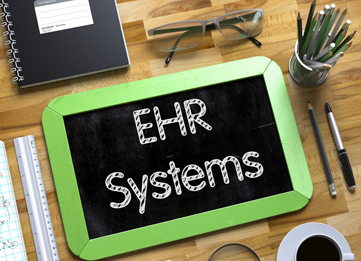 The Electronic Health Record (EHR) has revolutionized the way physicians treat their patients. EHR-integrated medical transcription service helps in the successful adoption of Electronic Health Record systems. The EHR is expected to facilitate patient care and improve patient outcome, but physicians who perform EHR entry on their own are forced to spend their quality time on the computer capturing the patients’ medical information rather than focusing on the patients themselves. Physicians also tend to miss out opportunities to engage with patients while using the EHR. Studies in this regard have shown that physicians spend one third of their time in the exam room looking at computer screens.
The Electronic Health Record (EHR) has revolutionized the way physicians treat their patients. EHR-integrated medical transcription service helps in the successful adoption of Electronic Health Record systems. The EHR is expected to facilitate patient care and improve patient outcome, but physicians who perform EHR entry on their own are forced to spend their quality time on the computer capturing the patients’ medical information rather than focusing on the patients themselves. Physicians also tend to miss out opportunities to engage with patients while using the EHR. Studies in this regard have shown that physicians spend one third of their time in the exam room looking at computer screens.
Various Studies about the Growing Burden of EHR
A study by Annals of Family Medicine examined the work of 142 family medicine physicians over three years. The study found that doctors spent more than half of their time (six hours or more) on an average of 11 hours a day on EHR. Another study in Health Affairs, tracked the activities of 471 primary care doctors over a period of three years. They found that EHR time edged out face-to-face time with patients. Yet another analysis by Annals of Internal Medicine in which 57physicians were observed for around 430 hours, found that doctors spent almost twice as much time doing the paperwork instead of talking to the patients i.e. 49 percent of time was spent on administrative work and 27 percent with patients. The above mentioned studies show that physicians are not able to devote enough time for patient care.
Danielle Ofri, a doctor at Bellevue Hospital and an associate professor of medicine at the New York University School of Medicine points out that everyday, patients who have chronic illnesses are increasing, and patients with more health concerns are to be taken care of. But the major problem is that EHR work is increasing rapidly and the documentation demands are very challenging. During the consultation, doctors must listen to their patients carefully and figure out their clinical situation accurately. But in today’s world, what matters more are EHR requirements and the bitter truth is that each minute spent talking with patients means compromising the time for EHR entry. The EHR system offers various benefits such as legibility, centralized location of medical records, electronic prescription and so on, but this system has also brought a negative impact on patient care. Conventional medicine puts the patient first but with this system, documentation comes first. Many doctors feel that EHR system has jeopardized patient safety and now it’s time to act.
The first step is that health systems should be required to periodically measure EHR burden and should be fined when it detracts too much from face-to-face time with patients. Then hospitals would use EHRs with the required fields only, and not include fields that cover their own needs and not the patient’s. The EHR itself should be held to a higher standard and treated like a medical device that is scrutinized before allowing into the market. Vendors should be held responsible for EHR designs that are detrimental to patient care.
Physicians and hospital systems can try to minimize EHR impact on patient care by shifting EHR related documentation to professional vendors. Today, many healthcare organizations hire the service of medical transcription companies to take care of electronic documentation. These are customized services available at affordable rates that will help physicians and other healthcare professionals to focus more on providing quality patient care and service.


